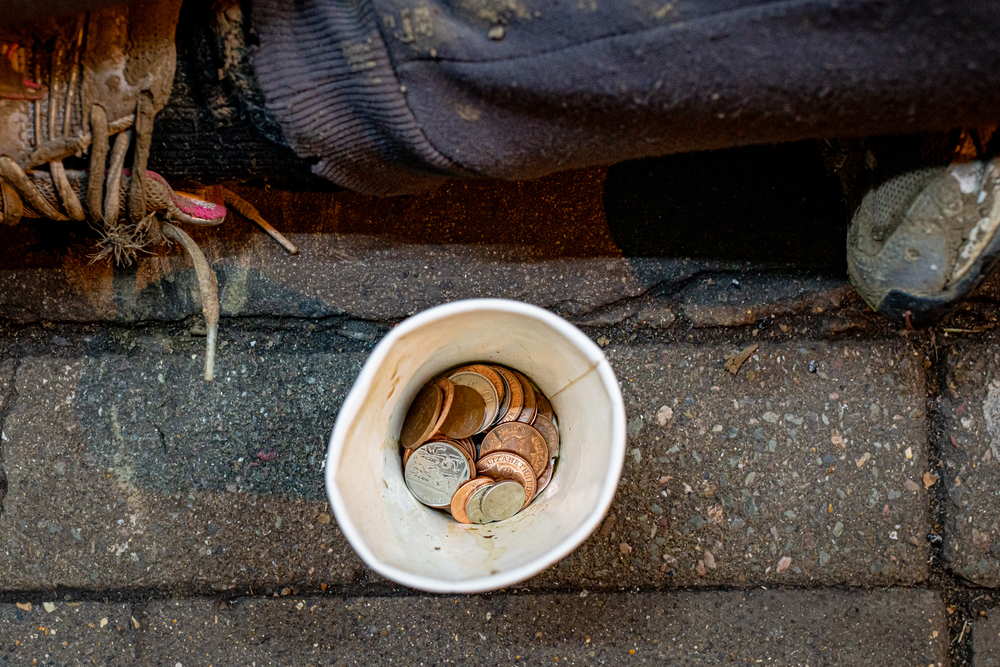If you live or work in a city you likely pass them on the streets and sidewalks every day. Holding a sign reading “Homeless, please help” or an old coffee cup to collect spare change, the itinerant panhandlers and chronic homeless look you in the eye and ask for your money.
What do you do in such situations? What should you do?
Jim Antle recounts some of the experiences he’s had with panhandlers and explains why he gives them money:
There are a million excuses to pass the homeless by, many of them valid. I use them all almost every day. For many of these people, struggling with substance abuse and mental illness, I could empty out my bank account and at best help them only temporarily.
In other cases, the assistance could be counterproductive or even foolish. Many will use any cash they get to buy drugs or booze. Others may lie about their circumstances.
Yet even when I convince myself to keep walking, I can’t block out these verses from Matthew: “Then the righteous will answer him, saying, ‘Lord, when did we see you hungry and feed you, or thirsty and give you drink? And when did we see you a stranger and welcome you, or naked and clothe you? And when did we see you sick or in prison and visit you?'”
“And the King will answer them, ‘Truly, I say to you, as you did it to one of the least of these my brothers, you did it to me.'”
Every panhandler I help could be a scam artist. But each one I pass by could be Jesus.
Antle’s efforts to live out a Biblical ethic of neighbor love is convicting and makes me wonder, “Am I doing all I can do for my homeless neighbors?” I certainly can’t fault Antle’s approach, but I find I’m more inclined to agree with Kevin Corinth, an AEI scholar and homelessness researcher. In response to Antle’s column, Corinth says,
This is one of the best accounts I’ve seen of a Christian’s internal struggle regarding street homelessness. It’s blatantly honest and reflects genuine love for humanity. But he goes wrong in his last sentence when he says “Every panhandler I help could be a scam artist. But each one I pass could be Jesus.” The truth is that some are scam artists, and many will do harm to themselves with the money. And yet EVERY single one of them is Jesus. We are called to love scam artists and substance abusers just as much as we are called to love those poor people society deems more “pure.”
And so the question is — if Jesus was suffering from drug addiction, had a mental illness, or was a scam artist — how could we best show our unconditional love for him? My answer? We would not give him cash in order to placate our personal fears about rejecting Jesus. We would certainly not ignore him to avoid discomfort. Rather, we would recognize the deep struggles our brother is facing. We would certainly look him in the eye and acknowledge his humanity. We would out of deep empathy for his struggle, politely decline his request for financial assistance. Depending on our schedule, we may offer to share in a meal or a cup of coffee. We would pray for him, and we might give money to organizations which can more effectively address his needs than us.
The world is an uncomfortable place with real suffering – I think we achieve our full humanity when we live inside that world as much as we can bear.
What do you think? What’s the best approach for dealing with our neighbors on the streets who seek our aid?
